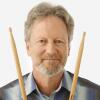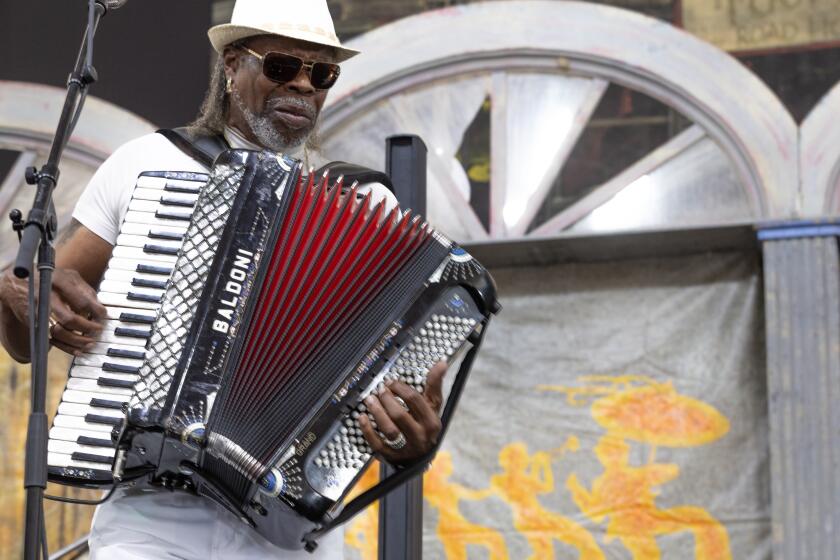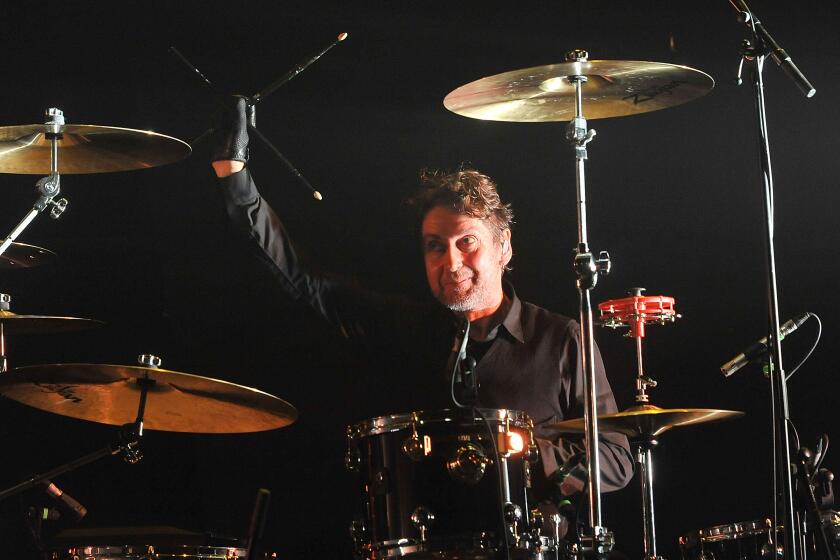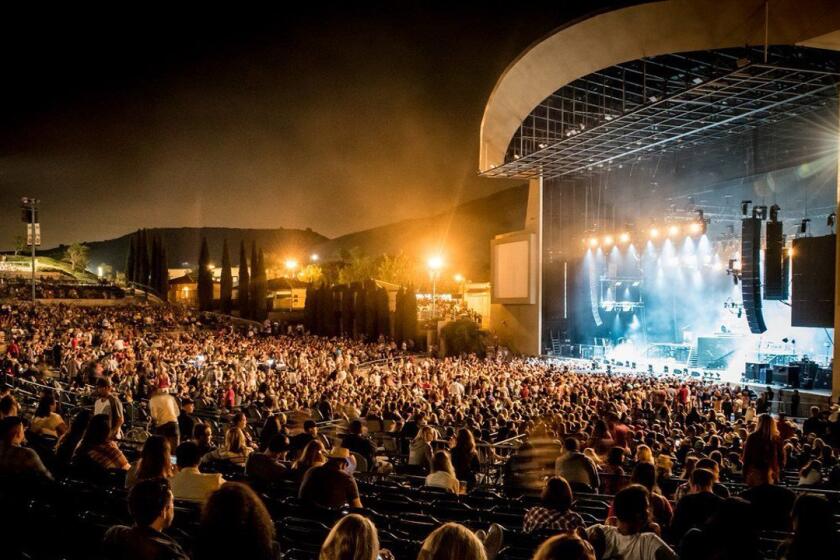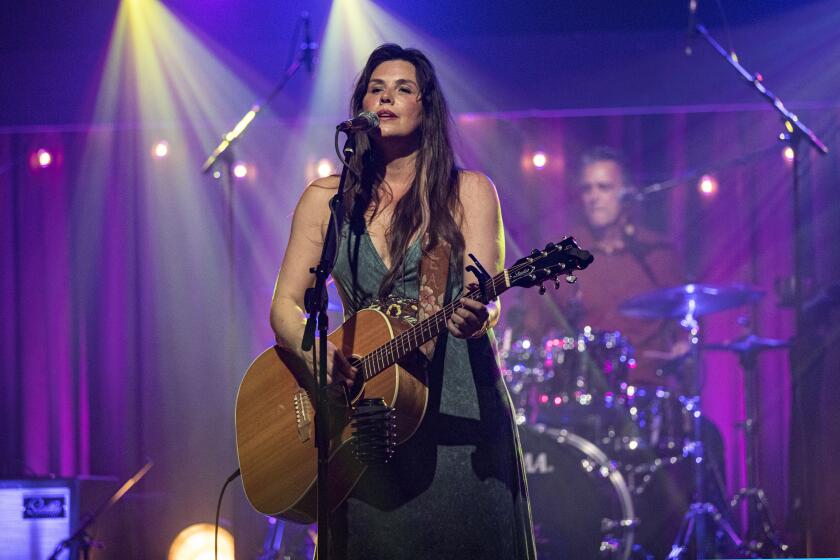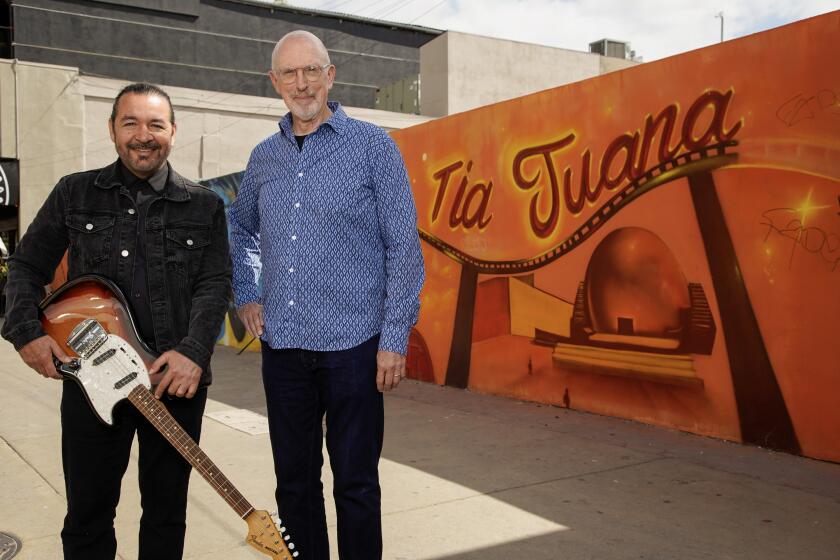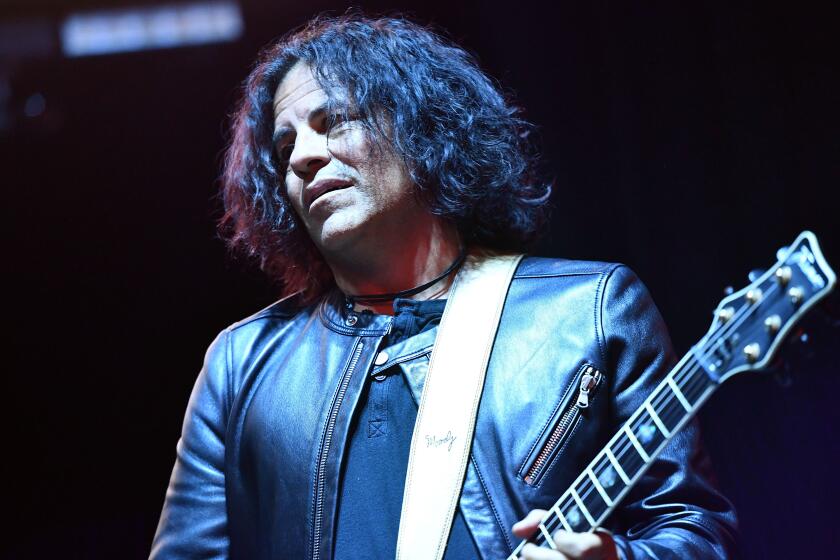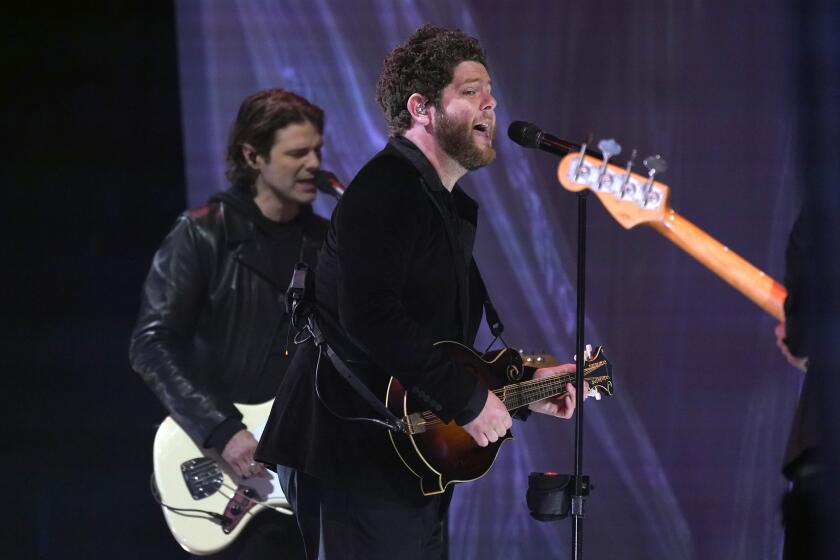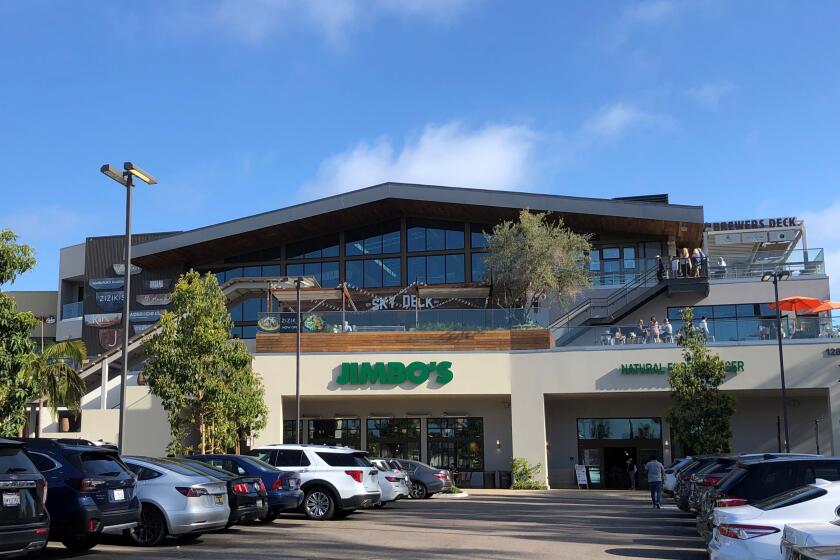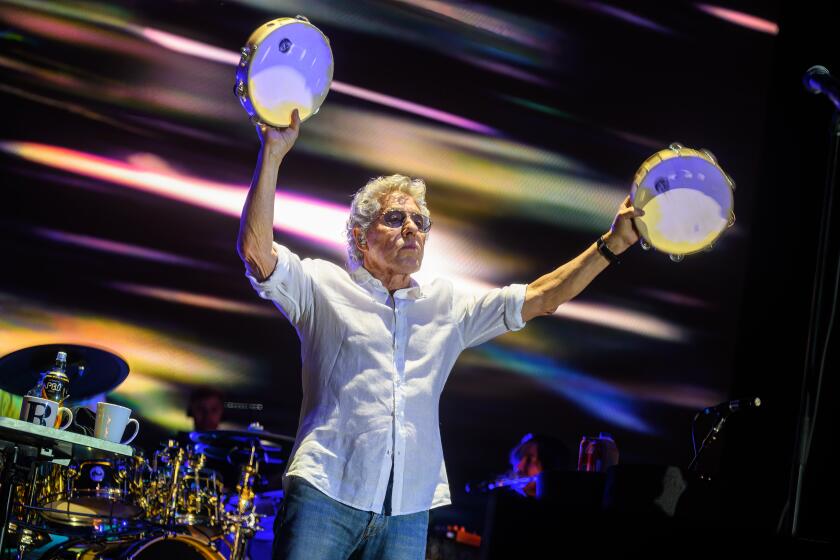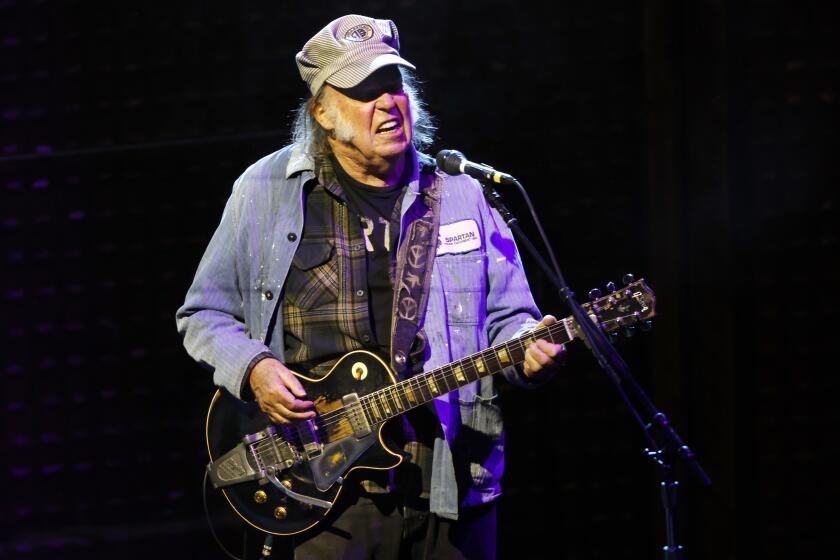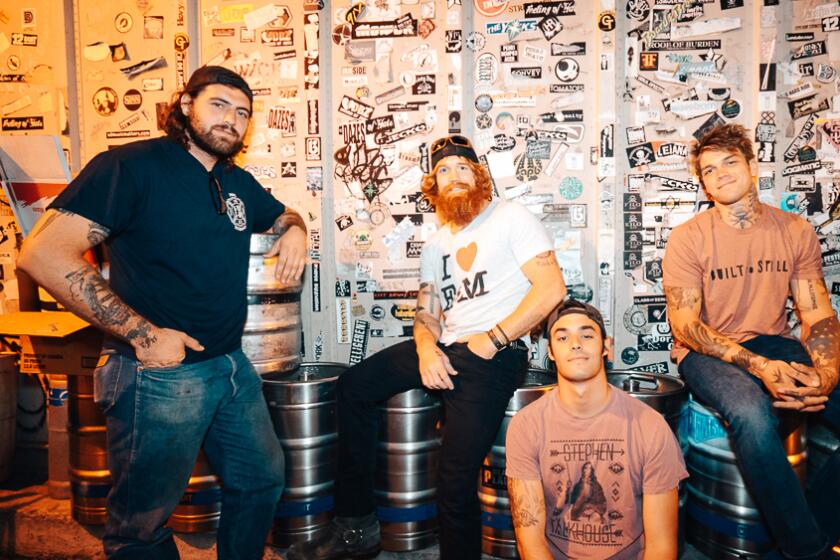Jason Mraz bonus Q&A: ‘I always battle with self-doubt’
The Grammy-winning troubadour weighs in on music, politics, fellow musician Gregory Page and more
There’s more to Jason Mraz than one article can contain!
We take a deep dive with the Grammy Award-winning troubadour in today’s Union-Tribune Sunday Arts + Culture interview, Jason Mraz fully embraces reggae on his new album, and thanks the high-school bullies ‘ who kicked my ass’.
But not deep enough to cover all the topics the Oceanside singer-songwriter discussed in our recent conversation. Here are edited excerpts from the rest of that interview.
Q: Is your falsetto singing on “Gratitude,” the last song on your new album, an homage to Smokey Robinson by way of James Taylor, who is a big Smokey fan?
A: Hmm. Hmm. I’m gong to say, indirectly. Last night I had Sam Cooke on and I remembered how much my dad listened to his beautiful tenor voice when I was growing up. There’s a lot of soul music my dad listened to that sneaks into my music and I want to emulate all those pretty songbirds, from James to Smokey to Sam to Aretha. Indirectly, I’m just a derivative of all those artists.
Q: “Gratitude” also features an electric piano solo, presumably a Fender Rhodes, as does the title track on your “Look for the Good” album. Is that coincidental, or have you had some kind of electric piano/Fender Rhodes epiphany?
A: Yes. I’ve been writing more on the piano and have a little collection of keyboards, and these were a driving force on the songs for this album. The keyboardist on this album, Daniel Mandelman, is a a really cool cat who expressed himself beautifully on this record, knowing what I was going for. And I told Michael Goldwasser, the producer of the album — because we made this record without a (record) label, we were free and could experiment — ‘I hope there’s a Rhodes solo on every song. I don’t want us to be confined to a 3- or 4-minute song. If a song needs to be 5 to 7 mins with a big Rhodes solo in it, I’m fine with that.’ We managed to do that, while staying somewhat conservative and staying somewhat respectful of the length of the songs. That’s a key observation, to note the keyboard’s prominence on this record.
Q: Are you a self-taught pianist?
A: Yeah. I did start playing when I was a little kid. But I didn’t want to take lessons; I was too restless. When I was 18, I discovered guitar. It was more mobile and became my primary instrument, although I still didn’t know what I was doing. The last few years, I’ve been sitting down to play more piano. It’s a different instrument for me. I write differently and I feel differently when I’m on piano.
Q: Did you have a piano epiphany that drew you back to the instrument?
A: You know what? Here’s a good story. During my promotion of my (2018) album, “Have It All,” I was in Columbus, Ohio, visiting a youth shelter. A bunch of kids were playing songs and one kid had a guitar. I was seated at the piano bench and everyone kept looking at me, like: “Ooh, you’re going to play something.’ And I couldn’t play my own songs on the piano! I was embarrassed. At that moment I said to myself: “I’m going to learn to play my songs on the piano.” This was probably two years ago. I said: “I’m going to learn to play all my songs on the piano.” It’s helped me to re-imagine my songs and hear them in new ways, as well as to create new songs.”
Q: When people think of songs about divorce, they might think of Pink’s “Family Portrait,” blink-182’s “Stay Together for the Kids,” Tammy Wynette’s “DIVORCE” or Reba McEntire and Kenny Chesney’s “Every Other Weekend.” Your song “Gratitude” may be the first in memory where the singer-songwriter thanks their parents for divorcing. Your parents divorced when you were 5 years old. At what point did you realize that their divorce was a positive for you, not a negative?
A: I think I got lucky. Because, at 5, I was still pretty young to understand the pain that my parents and older sister were going through. I think my older sister was more scarred than I was. By the time I had my 7th birthday, I felt the benefit of (having) two households with double the amount of love and the new grandparents showing up on both sides. So I just continued to see the good. And, as I became a teen, I realized I could hide between the two households, which gave me a sense of freedom and rebellion that was easy to navigate. So I always managed to find the good in that. I still feel the heartache my dad experienced, and my sister, and I feel for them. We are all still here and love each other.
Q: Do you think about music differently now than you did before the coronavirus?
A: Well, I think about it sort of in real-time. Today, I’ll sit at the piano and make up stuff. Then, tonight, I’ll play piano and lose myself. Music is a real-time practice that I love so much and am always surprised by. I never know what will come out of my mouth and what new chords and voicings I’ll find. So I’ll always have that respect and reverence for the magic of music. What is different is the promotion of music and how the music business works. Now that there’s less physical music (product) and it’s all streaming, and there’s no (live concert) touring, I have a lot more respect for the artists that don’t usually have a touring career and the artists that struggle to be seen and heard. I have so much respect for those artists.
For example, Gregory Page is a San Diego hero and a good friend of mine. I want nothing but a world of success for him. And, yet, he’s still relatively unknown. I can so empathize with him now, because I’m experiencing not being able to tour, not being able to make experiences and fighting to be seen and heard. And this is what a lot of musicians face on regular basis. The whole starving artist thing comes out of this lack of being seen and heard in a very competitive environment. So the music itself hasn’t changed; I love music, music is magic. The music business has changed dramatically, how music is consumed. And, now, without the ability to sell (concert) tickets, my whole life is (still) okay, because I’ve had success.
But looking at the future, I do have a big staff that works on my farm to grow food. And I have a big staff in my music management that helped with my career. I have a lot of folks whose salaries I’m paying for, and they are paid for by (my having) a lucrative touring career. I think I’ll be okay for a couple of years. But if we can’t get back on the road, I’ll need to re-evaluate how my art form is bought and sold. Hopefully, I won’t have that influence my respect for the spirituality of musicians; that’s the most important thing. And everything — the touring, the songwriting, the albums have generated — is for the music and comes from for the temple of music inside all of us.
Q: Can you elaborate on your music being so upbeat despite your being, by your own acknowledgement, a pessimist?
A: Well, the 2016 presidential election is the most recent big heartbreak that caused a real pessimism in me. I always battle with self-doubt, because I’m a self taught musician. Why do I have such success? And why do other people, who are better musicians,have hardly no success? So I struggle with doubt and have a pessimistic view of the world because I’m pessimistic about myself. The 2016 election only heightened that pessimism. I thought: “Really? This is what we’ve come to? A reality-TV star being the leader of the Western world and culture?” That doesn’t make any sense to me...
I’m not surprised the world is in the condition it’s in because of the 2016 election. And the 2020 election is not looking any better. So I feel almost despondent, because this big machine that is the United States has all our priorities out of whack. We are supposed to be the wealthiest and most free country of all, and we are far from it. We are one of the most divided and unequal countries. What is happening right now in Minnesota (with the George Floyd killing) is a perfect example. Budget cuts are happening all across the country for housing and education, but budgets for police departments keep going up in almost every city, and that makes me even more pessimistic.
So I have to make music that is unapologetically optimistic in order to keep myself from being despondent. Otherwise, I’ll be silent and being silent is part of the problem. So I’ve got to make some noise and I’ve got to make some music.
Get U-T Arts & Culture on Thursdays
A San Diego insider’s look at what talented artists are bringing to the stage, screen, galleries and more.
You may occasionally receive promotional content from the San Diego Union-Tribune.
